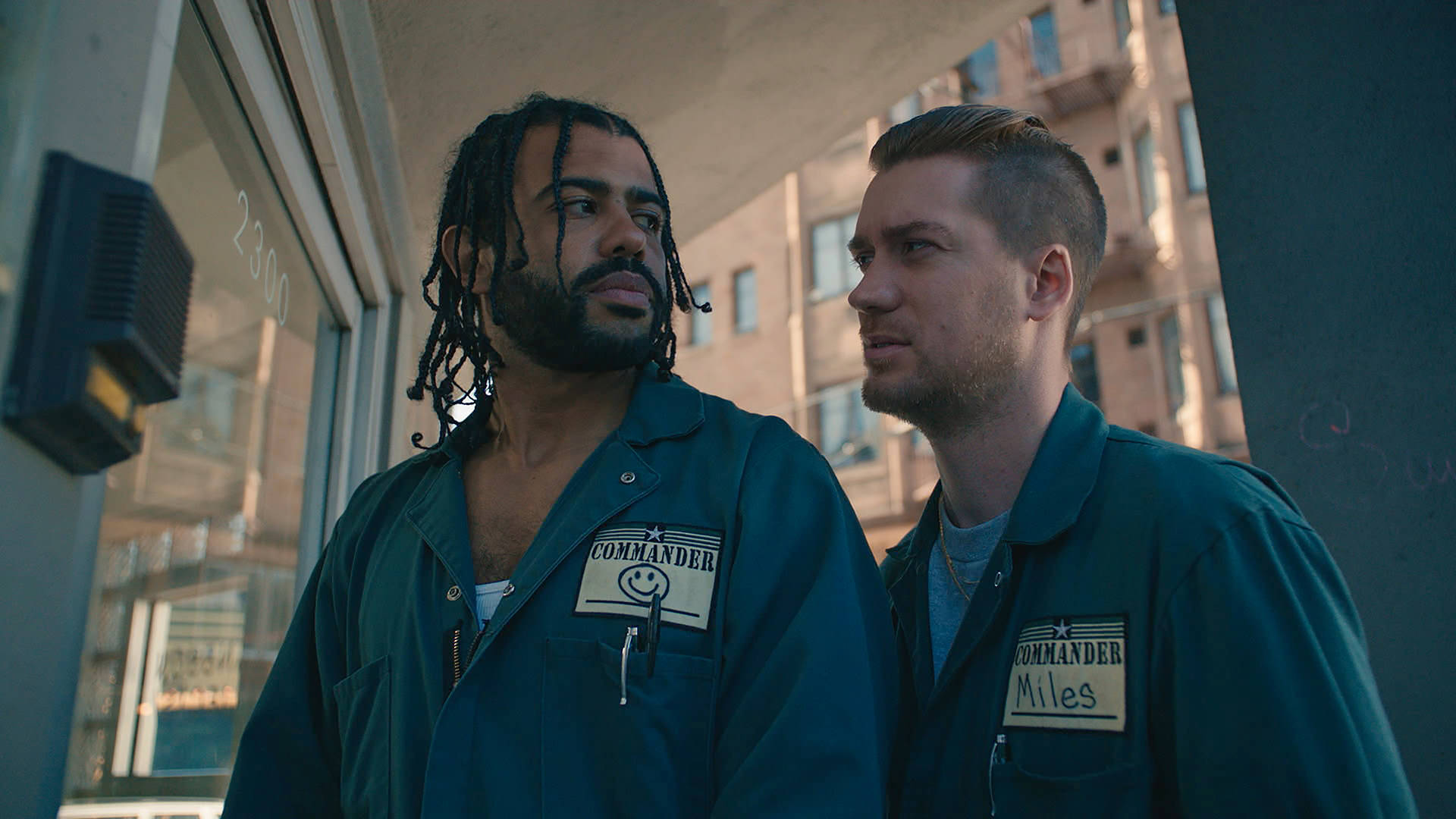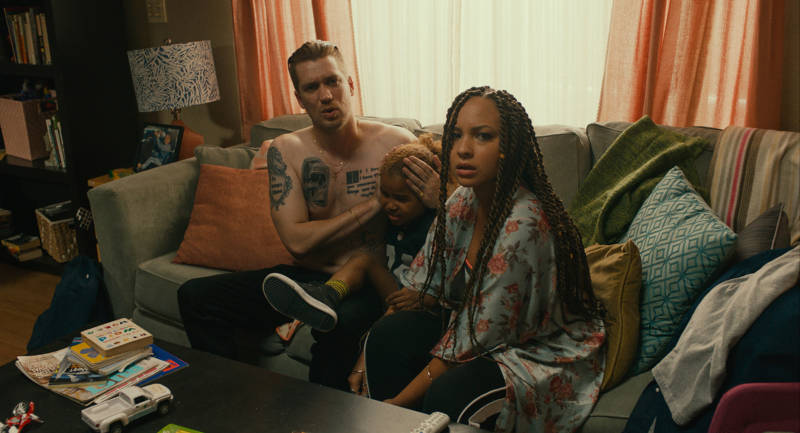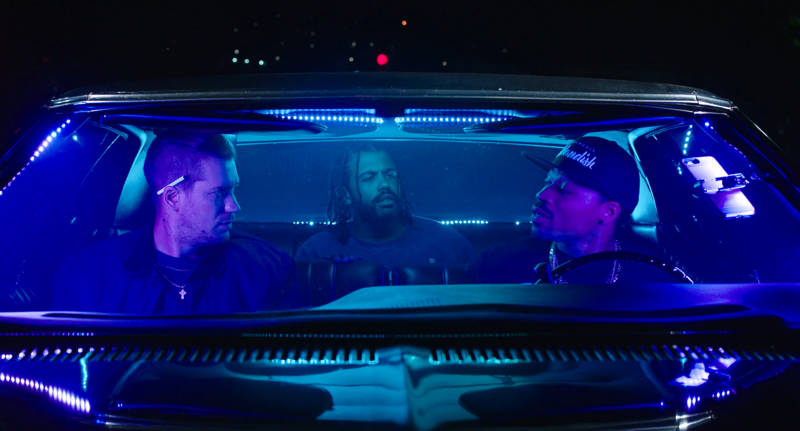Oftentimes, real life isn’t full of heroes and villains—it’s full of imperfect individuals trying to make do with imperfect circumstances, and wounding each other in the process. That’s a sentiment that comes across beautifully and poetically in Blindspotting, a new film that examines a complicated friendship set to the backdrop of heightening racial tensions in an increasingly gentrifying Oakland.
Collin (played by co-writer Daveed Diggs) is kindhearted and quiet, and trying desperately to get through his last three days of probation without going back to jail. Miles (Diggs’ co-writer Rafael Casal) is a young dad with a comparatively stable life, but he also has an angry streak and is prone to blow-ups and confrontations. Collin is black; Miles is white. And—surprise—Collin is typically the one who faces consequences when the two best friends get in trouble, often because of Miles’s reckless behavior.
Through the guys’ day-to-day work as movers, Blindspotting does a brilliant job showing gentrification as an ongoing process; they help an art gallery owner pack up his space, and clear out an old Victorian where a black family used to live. The film doesn’t let the viewer escape the sobering realities of the housing crisis, but the two friends’ quick-witted back-and-forth provides much-needed comic relief throughout. The culture clashes between new and old Oakland—like the guys’ friend Dez (Jon Chaffin), whose side hustles include driving for Uber and selling illegal guns, or the $10 green juice at the liquor store—are some of the funniest parts of the movie.
But the film’s humor often functions as laughter to keep from crying, and Collin and Miles’s radically different journeys navigating their hipster-fying city illuminate great truths about race in Oakland—and other cities in America where homeless encampments and craft cocktail bars exist on the same block. In a way, Blindspotting is like a controlled study. Miles and Collin come from similar class backgrounds, went to the same schools and even have the same job. But their different ethnicities drastically alter how they’re treated and perceived, and the tension that grows between them as their lives change is one of the dark comedy’s most emotionally poignant threads.




